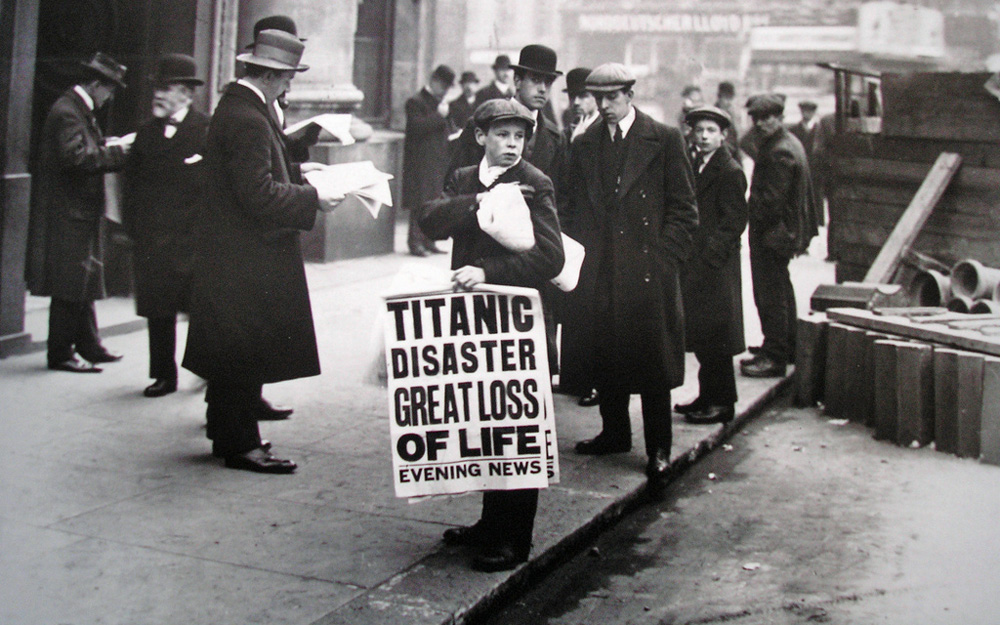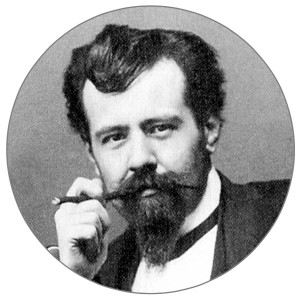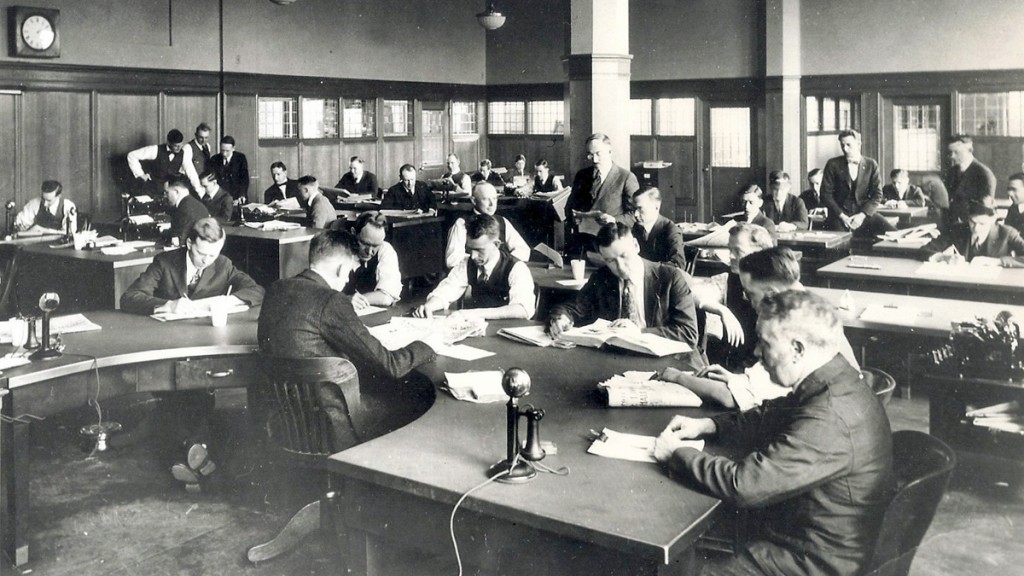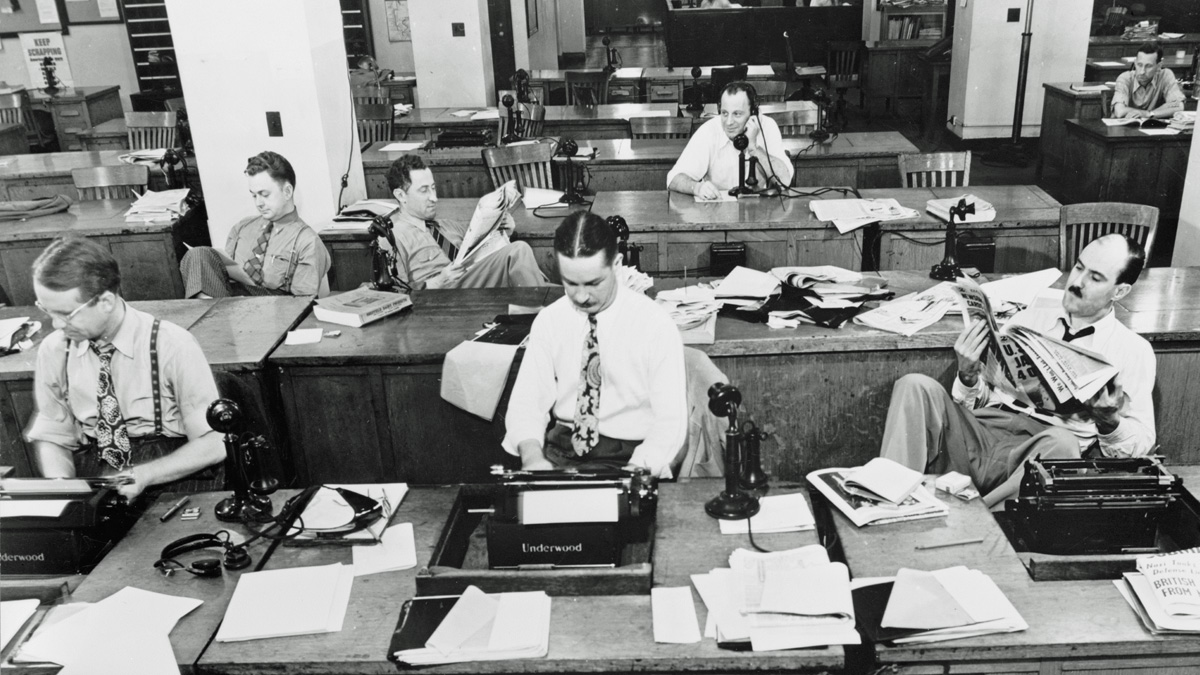My fellow journalists
We’re fucked.
This post is also available in: German
Journalists are more important than ever in the digital world. They check facts, they assess situations and they put things in perspective. The world has always needed professional authors. But what if that isn’t true after all?

I came across an essay recently that keeps haunting me. It was written by Vienna publicist Hermann Bahr and it discusses the future of literature, of poets, fiction writers and journalists, in short, about the profession that makes its living by explaining the world using language.

In his essay the Vienna publicist predicts the end of mass media as we know it, and the remarkable thing is: many of his predictions are turning out to be true. And what’s even more extraordinary about it: The text was written in the year 1910.
”A hundred years from now literature will be characterized by the fact that there will be no literary people any longer, i.e. there will not be a separate profession which has the privilege of providing words for others, the way bakers make bread and butchers give us meat.”
But literature is thriving, you may say, our mass media are as lively as ever. All manner of studies are telling us that never in history have people spent so much time using media. At the same time it has to be stated that classic media (and the professionals who create them) have recently seen a severe decline of their reputation, and thus a severe decline of their significance for society.
TV-viewers protest against what they see as one-sided reporting. People seem to be fed up with journalists, and they vent their anger in shitstorms and in slogans such as ”Lügenpresse“ (= Lying Press, a slogan that was last seen in the Nazi marches of the Weimar era. It has just been given the title “Non-Word of the Year” by a jury from Technical University of Darmstadt. It shares the honor with terms such as “betriebsratsverseucht” =union-infested, 2010. One runner-up this year was “erweiterte Verhörmethoden”= enhanced interrogation methods)
Media professionals feel increasingly hurt, if not outright offended by this readers’ revolt. But we can still consider ourselves lucky – as long as people abuse us, at least they take note. What about the generation that just ignores classic media?

What about a world where journalists no longer are the God-given gate keepers and sole guardians of the truth? Like no generation before us we as media professionals have to compete – with Google’s algorithms on the one hand and with the digital citizenry going apeshit on Twitter and Facebook on the other. For decades one of the largest German newspapers has claimed in its advertising: ”There’s always a clever head behind it“. That clever head now has a megaphone, and more often than not he/she knows a lot better how to use it than many a professional journalist.
Hermann Bahr wrote – in 1910, remember:
”Just try to understand what is the basis of today’s literature. A number of people make a living because others buy their poems. A poem is the state of mind of one human being, encrypted in words. There is no reason in the world why any other human being should spend money on getting to know the state of mind of this stranger – no-one cares about the person, nor about his state of mind.”

If we have to realize that merely transmitting a news item does not have any value in itself in today’s world, and that people have learned how to make their own selections and assessments and that they know how to put things into their own perspective – what is left to do for us, the journalists?
”So once the basic motivation behind today’s literature is eliminated we would have to ask ourselves if that wouldn’t mean a complete standstill of all literature [for a few centuries] ( … ) until something might happen that makes somebody speak up for reasons unbeknownst to us today, maybe because he has something to say, or because he is mysteriously driven to do it, because he simply has to.”
That “mysterious” drive has manifested itself for some time now – through a new literary genre: the blog. Are bloggers the poets of our time? Here is another one of Bahr’s bold hypotheses:
”There wouldn’t be a point in writing poetry any longer, other than obeying one’s own drive.”
Writing (”mental gymnastics“ as Hermann Bahr calls it) without getting paid for it? In 1910 Hermann Bahr gave us an accurate definition of a blogger, albeit subjunctively:
“ … no doubt people can be imagined who would still enjoy such a pointless and purpose-less composing, word-smithing as such, in spite of the fact that we are not quite capable to even think about such a race.”
The writer himself finds the concept so outrageous that he has to add:
”Of course this looks quite fanciful to us today, but since we have seen that Man has learnt to fly, we have become more inclined towards trusting the meanderings of our imagination.”
The End of the German Press in Years
Type in the title of a German newspaper or magazine - A project by OpenDataCity
So what does all this mean for us, today’s journalists? Most of Hermann Bahr’s predictions have so far come true. So if we just think them through, we can come to the following conclusions:
- In the future fewer and fewer people will be able to make a living from classic journalism
- In the future it will become increasingly difficult for journalists to reach their audience
- Our job description will change – journalists will be presenters, no longer omniscient preachers
- Bloggers – the poets of our time
So Huffington Post, BuzzFeed, UpWorthy etc. was only the beginning. The struggle for supremacy in the marketplace of public opinion is getting fiercer every day. Broadcasters and news publishers used to be the only contestants, but now anyone with a smartphone can get into the fray. And if you go by Hermann Bahr, the worst is yet to come for the media crowd:
”We also have to note that the transition to that new time when everyone will be their own poet will be a difficult one. An answer will have to be found to the question of what should be done about those non-operational poets, and there is reason to fear that it will not be easy to find any half-way suitable employment for them. Let’s be glad we are spared the problems of our grandchildren!”
Or to put in more Twitter-friendly terms:
We’re fucked.